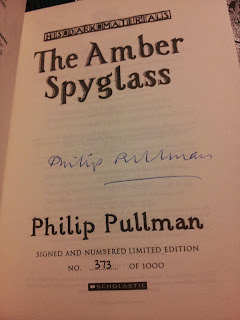Over the last few weeks, I've been fortunate enough to speak to several fantastic bloggers and journalists, who have been writing about victim blaming and violence. Most of this has been related to a the posters at occupational health (which have now been taken down), though I was asked to comment on a different issue today.
Judge Mowat, who is thankfully retiring, publicly stated that rape convictions will not fall until women stop getting drunk. She effectively told women that if they are drinking, their cases will be dismissed and they might as well not prosecute.This attitude is worrying, coming from anyone. But when it comes from someone as highly regarded, it is dangerous.
The statement I gave to the journalist is as follows:
"These statements, by a respected and trusted figure, are extremely worrying. Rape is the result of the perpetrators actions, and it is these that need to be examined, not the victim's. The archaic attitudes and stereotypes, combined with the taboo of sexual violence, mean that many women feel unable to seek the justice that they deserve or the support that they need. Rape happens to women of all ages, from all backgrounds, of all appearances and in all communities, and outdated, blinkered views of an 'acceptable victim' need to be challenged."
There's far more that I could have said "officially", but people better qualified than me had already covered these issues, including Rape Crisis England and Wales, and Oxford Sexual Abuse and Rape Crisis Centre.
Yet again, it shows how desperately we need to open a dialogue on the concept of consent. If respected judges and juries are telling women that women are at fault if they are so drunk they can't remember, and talk of whether they consented or not, it really brings into question their own knowledge of the law. After all, the perpetrator must reasonably believe that the woman had consented, and if the woman cannot remember because she had been so inebriated (which was claimed by Judge Mowat), then she evidently lacked capacity to consent.
Comments on the Mail Online's article include such gems as:
"Being so drunk you can't remember names makes you vulnerable, that's not blaming it's stating a fact", "Blame the ladette culture"
"Obviously people who are out drinking are easy targets"
"Women have to learn their limits"
"You wouldn't leave your front door open when you go on holiday"
"Women should fight like fury if they ever find themselves in such a situation"
"It wasn't your fault - well, it is if you get too drunk!"
"Men will learn not to rape when we all get into paradise."
But what do you expect from the average Daily Mail reader, eh?
Thing is, these comments show several of the key problems with the general public's perception of rape. Time and time again, people were writing about being out, being alone and vulnerable... but only one third of reported cases involve alcohol, not the vast majority as seems to be implied. And most callers to rape crisis helplines knew their attacker. That's not to negate the impact on those who are raped by strangers, but statistically speaking, the image put forward by these readers is the tiny minority.
As for fighting like fury and talking about injury and DNA samples as evidence, it again shows a lack of understanding. It is not as simple as fighting. There is fight or flight, but there is a third reflex as well - freeze. Both times that I was raped, I became incredibly still and passive. Maybe it was self-preservation, trying to stop any further physical harm, but it certainly didn't mean I consented in any way.
If women were to be responsible for reducing the risk to themselves and do this effectively, the actual list of advice would be rather different. It would include such gems as don't date, don't marry, don't make any friends (particularly male ones). Don't smile at anyone, don't leave your house, and live as a hermit in complete isolation.
Basically, it's completely and utterly impossible to protect oneself from rape, because it is the perpetrator's decision and fault. The victim cannot be expected to change her actions, her clothing or anything else, especially when that doesn't actually have any correlation to the incident (but even if it did...!)
People have preconceived ideas as to what a rape victim is. They don't see the reality of the situation, to the extent that I received a good and proper trolling on Twitter a few weeks ago, where I was told that no-one would ever want to rape a "land-whale" like me. Yet again, rape is reduced to a sexual act, rather than one of control and power.
What seems to be positive is that the dialogue is starting. Even publications like the Daily Mail, which have a historically poor reputation with regards to women's rights issues, are reporting positively about victim-blaming. Maybe the readers are still reluctant, but change takes time.
If you are interested in reading the Daily Mail article, it can be found here.







































